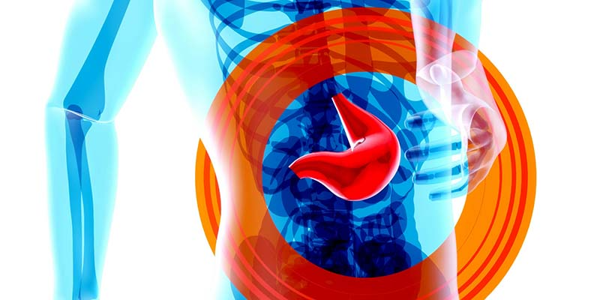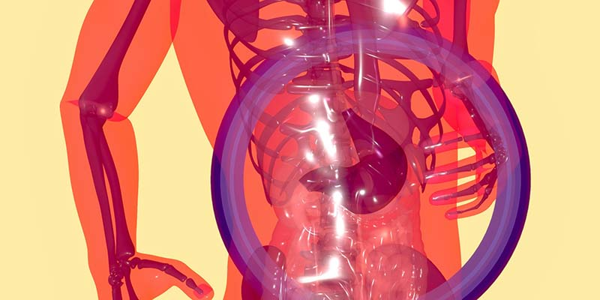Acid reflux, or gastroesophageal reflux disease(GERD), occurs when stomach acid flows back into the esophagus, causing discomfort and potential health issues. Early symptoms like heartburn, regurgitation, and difficulty swallowing can impact daily life. Recognizing these signs allows for timely treatment, preventing complications and improving overall well-being.
Common Symptoms of Acid Reflux
Heartburn
Heartburn stands out as the most recognizable symptom of acid reflux, often characterized by a burning sensation in the chest. This discomfort is frequently exacerbated after eating, particularly when lying down at night. Many individuals find that certain food choices, like spicy dishes, citrus fruits, or large portions, intensify this burning sensation, resulting in restless nights and an urgent need to adjust positions to relieve discomfort.
Regurgitation
Regurgitation occurs when the acidic contents of the stomach flow back into the throat or mouth, manifesting as a sour or bitter taste. This troubling symptom can instigate significant psychological effects, such as anxiety or embarrassment, especially in social contexts. The lingering unpleasant taste can compel individuals to become overly cautious regarding their dietary choices, which may inadvertently heighten their discomfort.

Burping and Bloating
Following meals, individuals may encounter frequent burping or bloating, which relates closely to specific food consumption or the pace of eating. These symptoms can indicate the presence of excess gas, leading to considerable physical discomfort. Rapid eating can disrupt proper digestion, facilitating air entry into the stomach and contributing to swelling and belching as the body attempts to relieve the ensuing discomfort.
Nausea
Nausea may vary in intensity among those affected and can arise after eating, in more severe instances, possibly leading to vomiting. Distinguishing this nausea from symptoms related to other gastrointestinal issues is crucial, as overlaps can complicate effective diagnosis and treatment.
Persistent hiccups experienced by individuals with acid reflux can signify irritation of the diaphragm, typically due to acid damaging the esophagus. These involuntary contractions can prove disruptive, leading to frustration for affected individuals, often necessitating dietary or habitual modifications to decrease frequency.
Additional Symptoms of GERD
While heartburn is the hallmark symptom of gastroesophageal reflux disease (GERD), additional symptoms can also significantly affect quality of life.
Chronic Cough
One lesser-known symptom of GERD is a chronic cough, stemming from throat irritation. When stomach acid ascends into the esophagus, it can irritate both the throat and respiratory pathways, which may lead to ongoing coughing episodes. This irritation not only causes discomfort but can also feel embarrassing in social situations.
Sore Throat and Hoarseness
Another frequent symptom is a sore throat and hoarseness, resulting from persistent irritation of the throat tissues. This inflammation can cause voice changes, making speaking or swallowing uncomfortable. Individuals may notice a gradual worsening of these symptoms, especially when exposed to trigger foods like spicy dishes or acidic beverages.

Difficulty Swallowing (Dysphagia)
Dysphagia, or difficulty swallowing, is another distressing symptom tied to GERD. Patients often report a sensation of food feeling lodged in their throat or chest, leading to anxiety during meals and the avoidance of certain foods, which can negatively impact their nutritional intake and lifestyle choices.
Chest Pain
Chest pain associated with GERD can mimic the pain of serious heart conditions, prompting many to seek emergency medical attention. Properly diagnosing this pain is essential, as misinterpretation can lead to unnecessary medical interventions. Such pain arises from esophageal irritation and can be quite distressing for those affected.
Bad Breath (Halitosis)
Halitosis, or persistent bad breath, may also result from GERD. Stomach acid and undigested food that regurgitates into the esophagus can produce unpleasant odors, potentially complicating social interactions.
Worsening Symptoms at Night
Symptoms of GERD often worsen at night, as lying down can exacerbate reflux, primarily due to gravity's role in keeping food in the stomach. This can lead to disturbed sleep patterns, contributing to complications like fatigue and irritability.
Excess Salivation
Lastly, individuals may experience an overproduction of saliva in response to the irritation caused by stomach acid. While this symptom may seem minor, it can lead to discomfort and complicate oral hygiene, especially when attempting to counteract associated bad breath.
Complications of Untreated GERD
If left untreated, gastroesophageal reflux disease (GERD) can escalate into several serious complications. Esophagitis is inflammation of the esophagus resulting from the acidic irritation of the lining, leading to painful swallowing and potential development of ulcers. Over time, this may lead to esophageal strictures, where scar tissue forms due to prolonged inflammation, narrowing the esophagus and making swallowing difficult.
Chronic exposure to acid can also result in Barrett’s esophagus, a condition where the cells lining the esophagus undergo precancerous changes, significantly increasing the likelihood of developing esophageal cancer. Studies consistently indicate a strong correlation between long-term untreated GERD and increased incidence of this type of cancer.
Moreover, the acids from reflux can cause tooth enamel erosion, which could lead to long-lasting dental complications. Additionally, individuals may encounter respiratory issues due to aspiration, where stomach acid enters the lungs, potentially resulting in severe complications such as pneumonia.

Treatment Options for Acid Reflux and GERD
Effectively managing acid reflux and gastroesophageal reflux disease (GERD) necessitates a multi-pronged approach, which encompasses lifestyle modifications, medications, and advanced treatments for more severe cases.
1. Lifestyle and Dietary Changes
One of the primary defenses against acid reflux and GERD involves implementing lifestyle changes. Individuals should identify and avoid trigger foods, which can include fatty or spicy dishes, caffeine, tomatoes, and chocolate, as these can worsen symptoms. Emphasizing mindful eating habits can yield significant benefits; consuming smaller, more frequent meals rather than larger portions, and refraining from eating late at night can help minimize acid production after meals. Other lifestyle modifications include maintaining a healthy weight, engaging in regular physical activity, and elevating the head while sleeping, all aimed at alleviating discomfort and promoting improved digestion.
2. Medications for Acid Reflux and GERD
If lifestyle changes prove inadequate, a variety of medications exist to help manage GERD symptoms. Over-the-counter antacids, such as Tums or Maalox, provide immediate relief by neutralizing stomach acid. H2 blockers, including ranitidine and famotidine, serve to reduce acid production for prolonged relief. For cases of severe symptoms, proton pump inhibitors (PPIs), such as omeprazole and esomeprazole, are frequently recommended due to their potent capacity to significantly decrease acid production, alleviating persistent heartburn and promoting the healing of the esophagus.
3. Surgical and Advanced Treatments (For Severe GERD)
When other treatment methods fail, surgical interventions may be appropriate. Procedures, such as laparoscopic fundoplication, involve wrapping the upper part of the stomach around the lower esophagus to prevent reflux. This approach is typically advised for patients with severe GERD who have experienced complications or have not responded to medications. Although surgery can profoundly impact the quality of life, patients need to have thorough discussions with their medical providers regarding the potential risks and benefits of such options.















